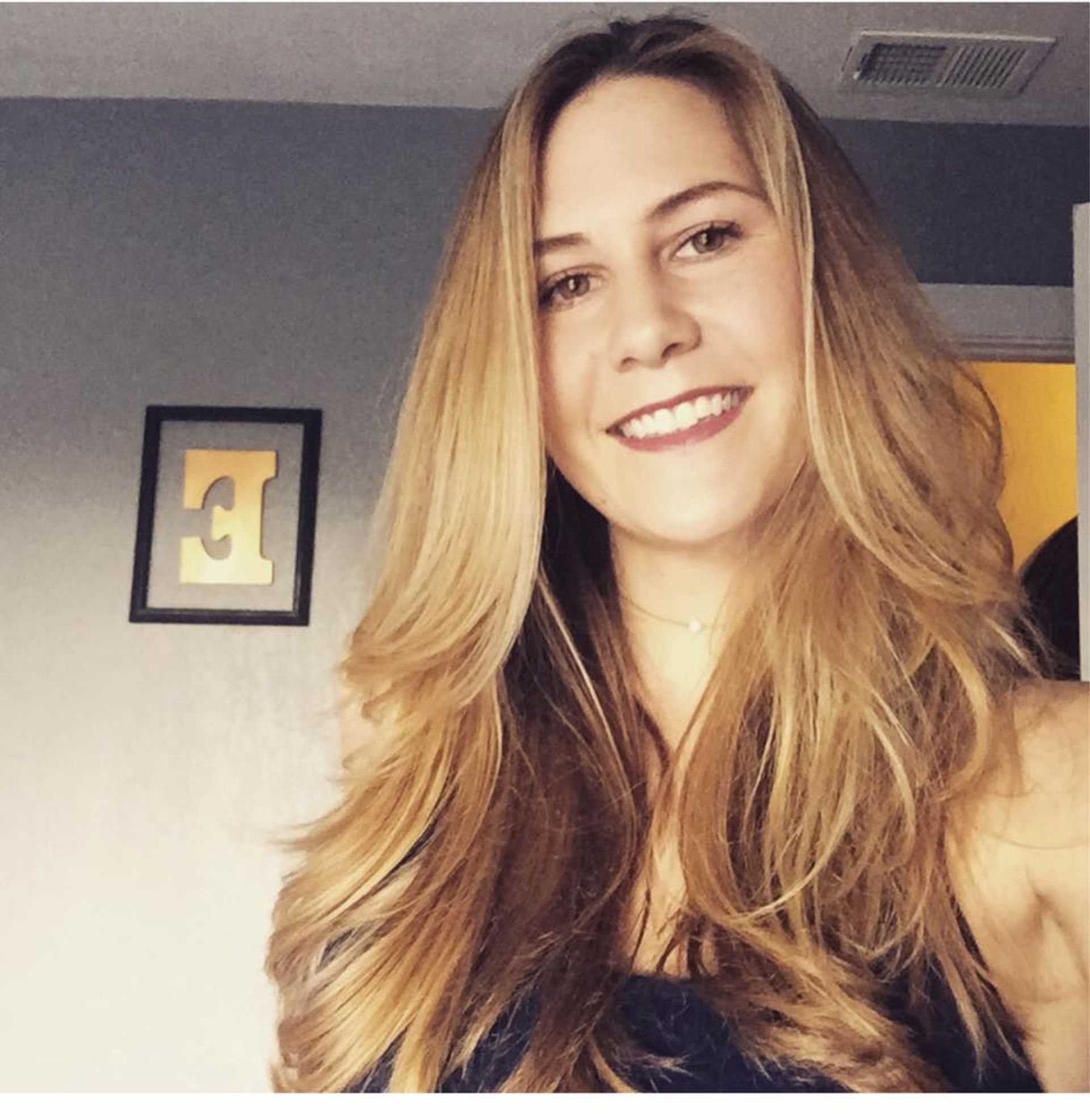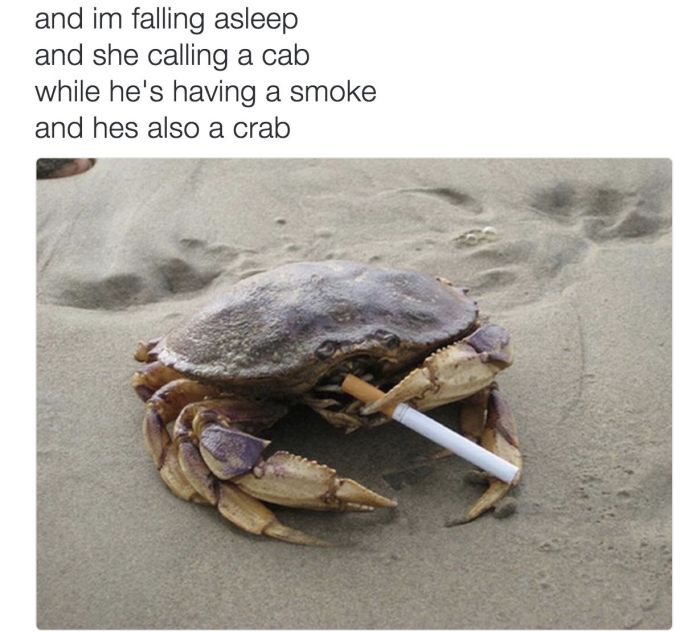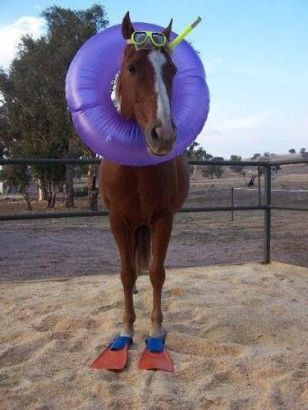We are a group of creative people who help organizations make their ideas beautiful.

Christina Callahan
Christina Callahan has seen a lot of animals in her life, but there’s one small aquatic creature that continues to elude her, though she’s been chasing it around the world, underwater, for the better part of 10 years.
“I’m still trying to find a seahorse in the wild,” she says. “Even for experienced divers, it’s rare. I’ve been SCUBA diving in a lot of places, but no luck so far. When I see one, I will die and go to heaven.”
Which is a strange plan, because Christina already spends most of her time in heaven, if by “heaven” you mean “everything,” which Christina thinks you should.
“I’m not a religious person. I’m spiritual, but I don’t label it. Kindness is my religion.”
OK, but for an agnostic spiritualist, Christina has an uncanny way of modelling exactly the kind of selfless and self-reflective behavior most religions advocate. There is one biblical injunction (1 Thessalonians 4:11) which is usually summarized as: “Study to be quiet.” Most religious scholars interpret the verse as advising us to be peaceful, avoid gossip, and let our work speak for us.
This is how Christina lives her life, and a kind of tranquil self-possession surrounds her like a force-field.
The first time we meet, I’m struck by her calm, slow, humble way of speaking. And I’m shocked by how deep she is, by how much she has clearly thought about the biggest issues of life: how to construct a personal ethic, how to raise children, how to navigate a world full of blowhards and busyness, the intersection of mathematics and galactic mysteries, the big fat meaning of it all.
Christina even seems to know why I was so surprised by her philosophical nature.
“I’m a people person, but I’m quiet. I’m kind of an introverted extrovert, and that’s not how our society is oriented. People like to talk. People love to look busy. They love to look important, which comes from a place of insecurity. They need to understand that it’s good to slow down. When you’re just railing through life, you’re not aware of what’s going on. I was raised to live in the moment.”
Christina’s biological parents—Charlie and Janet—had five children: three boys and two girls, of which Christina is the youngest. Charlie and Janet divorced when Christina was two years old, and she grew up living mainly with Charlie and his second wife, June. Her mother also got remarried, to a man named Jeff. Everyone gets along well, and both step-parents have been instrumental in Christina’s life. She calls them her “bonus parents.”
“Both sets of parents are wonderful. Everyone can hang out together peacefully. They really set a model for how to be respectful. Things don’t always work out the way you hoped, but if you genuinely love each other, you can agree to disagree and come together for the good of family.”
Christina has gratitude for all of her parents, but there’s one man whose example has proved particularly instructive.
“When you think of a country man, my dad is that person to a T. He will give you the shirt off his back. He will help anybody. He’s the one, if he sees someone broken down on the road, he will stop to help. Nowadays, most people just drive by. You know, you’ll see someone on the side of the road, and all the other cars will just fly past and no one even stops to help push them out of the road. We’re all just living this fast-paced life and I think he’s taught me to just sort of slow down and enjoy who you are. And take care of others, take care of yourself.”

Christina pauses, looks up into the middle distance over my right shoulder and smiles as a specific memory comes traipsing back into view.
“Where I grew up, there really weren’t very many homeless people. There were definitely people who were struggling, but not many people who were truly homeless, like there are in the city. But there was this one guy—Steve, I think his name was—and my dad would always pick him up. And he smelled so badly. We’d have to stick our heads out of the window of the truck. I know that sounds bad, but it’s true. And my dad would take him into the store and chat with him: ‘Ok Steve, you need anything? What can I get you?’ He’d just load him up with food and drive him around. Steve had a mental condition. He had a family, and a place to live if he had wanted that. But he just chose a different life. These days, you just don’t find very many people who are willing to do [what my dad did], to pick up someone in need and just talk to them like a regular person.”
For his children, Charlie models a strong work ethic and responsibility to the community. But he also shows them the importance of play.
“He was a diesel mechanic, but he’s retired now. He plays the spoons three or four times a week in bars around town. They have a meet-up group that plays at Hardee’s. He also plays the washtub. It’s a stand-up bass, but he literally made it out of a washtub, flipped over. He put a screw in the middle of it, and then some heavy twine that runs up and a wooden rod for a neck. He plays the grass-harp, so that’s usually what he’s doing. I can never get ahold of him. I’ll text him and the next day he’ll say: ‘Sorry, I was playing music last night.’”
But back to those damned seahorses.

Most of us have a de facto spirit animal. A creature that, for whatever reason, evokes some kind of intense empathy in us. For most people, these creatures fall squarely into a category biologists call “charismatic megafauna.” You know, like lions, bears, elephants and whales. Large animals with widespread appeal.
Whatever a seahorse may be, it is not a charismatic megafauna.
What a seahorse is, in fact, is tiny and odd. Let’s call it “enigmatic microfauna.”
Seahorses are actually fish, but they are notoriously bad swimmers. They are fish that can drown. They are also completely monogamous, and bond so completely with their mates that couples will perform elaborate dances with each other, every morning, out of pure excitement.
And the males give birth. Sure, the females provide the eggs, but the males essentially gestate the fry until they’re big enough to be launched into the fraught and storm-tossed sea.
I’m not saying these are the reasons Christina is fixated on them. But for a woman with her background, who knows so much about animals, it can’t be irrelevant.

When I say Christina knows a lot about animals, I mean she’s raised a lot of animals. Growing up on a hobby farm in Cedar Hill, Missouri, Charlie and June took what Christina describes as a “laissez faire approach” to pets and parenting, which meant she and her siblings could have just about any animal they wanted, as long as they took care of it.
Dogs and cats, of course. But also horses, goats, chickens, hedgehogs, a pot-bellied pig named Piggy Sue, ferrets, rats, mice, dogfish (“those are fish with legs”) and rabbits.
“These weren’t animals to make money from,” Christina explains. “They were family members.”
Fair enough, but there are some obvious predator/prey relationships in that list. Surely not every pet survived.
“But they did! I mean, our cats and chickens were sometimes targeted by coyotes. But under our care, they all did very well. They flourished. And they actually became a family. So all these different animals that were together would look after each other. You would see them; they became a family as well.”
Christina’s parents did have some important rules. The growing menagerie had to remain outside. Dogs were not allowed in the house. Cats were not allowed in the house. The sole exception? Piggy Sue, the pot-bellied pig. She had indoor privileges, at least until she got too big.
If you’re thinking of starting your own hobby farm, Christina has some advice:
“Horses are a pain to raise. Shoes. Saddle. The vet bills are insane.”
A better choice? Hedgehogs.
“They’re exotic, but they’re pretty easy to take care of.”

Christina considers herself an autodidact, but she has spent a lot of time in classrooms. She started college with the goal of becoming a pharmacist. But a stint as a pharmacy tech changed her mind.
“I liked chemistry, but I didn’t like the culture of a pharmacy life,” she remembers. “You’d see a lot of really awful things. Sick people coming in with drug addictions. Things like that. It wasn’t how I wanted to spend my days.”
So she changed her major to Accounting, dived into the world of mathematics, and hasn’t looked back.
“I have a fond love for math. It’s a universal language. There’s more to math than most people understand. And it’s kind of sexy when you see how it ties into nature. When you look at a flower, it’s so symmetrical and mathematically perfect. When you break things down to their cellular level, it’s easier to have a love for it. I think that’s why some of the smartest people and insane madmen love math. They’re trying to discover a story, and they know it’s there. Math will be the answer to why we’re here, our purpose.”
I ask Christina if she was always able to fluently reconcile these two halves of her interests: numbers and nature.
“No, not at all. I hated math when I was younger. I was a mentally restless kid, and school was really hard for a while. But when I rediscovered math later, I realized it was amazing. Writing is writing, science is cool, but math is everything.”

Mentally restless? Is it possible she had ADD?
“Well, they diagnosed me with ADD when I was a kid. But I don’t have ADD. I have a hyper-active mind that needs stimulation. And my parents didn’t know that, and they just medicated me, like so many kids of my generation were. And I hated it. And eventually, when I got older, I took myself off [the medication]. I realized I just have to stimulate my mind.”
I can’t resist the instinct to ask what Christina thinks about this issue. Who’s responsible for a solution, the parents or the teachers?
“Parents have to have boundaries at home that set kids up to succeed in school. But modern society just has so many other things working against them. So many families now are unstructured; the parents work three jobs, they have no consistent schedule, etc. And then the kid has problems focusing at school. And everyone puts the onus on the kid. And drugs are just the easiest way to deal with the problem, but it’s not fair to the kid. The parents and the teachers are the ones who are failing, but the kid is the one who has to pay the price. It’s a broken system that is just tremendously unfair to the child.”

After she answers my last few questions, it’s time to wrap up our conversation. I look through the glass walls of the conference room in which we’ve been sitting. Outside, the frenetic hustle and muted din of the agency awaits. I’m honestly sad our talk is over, it’s been such a wonderful and restorative break.
But Christina is placid, neither rushed nor reluctant. She stands up, smiles and travels back toward her office like the elusive seahorse, calm and determined, cantering peacefully through blue depths you and I may never reach.

